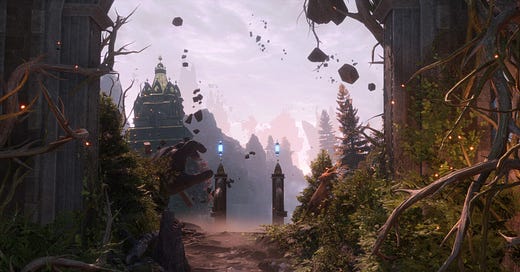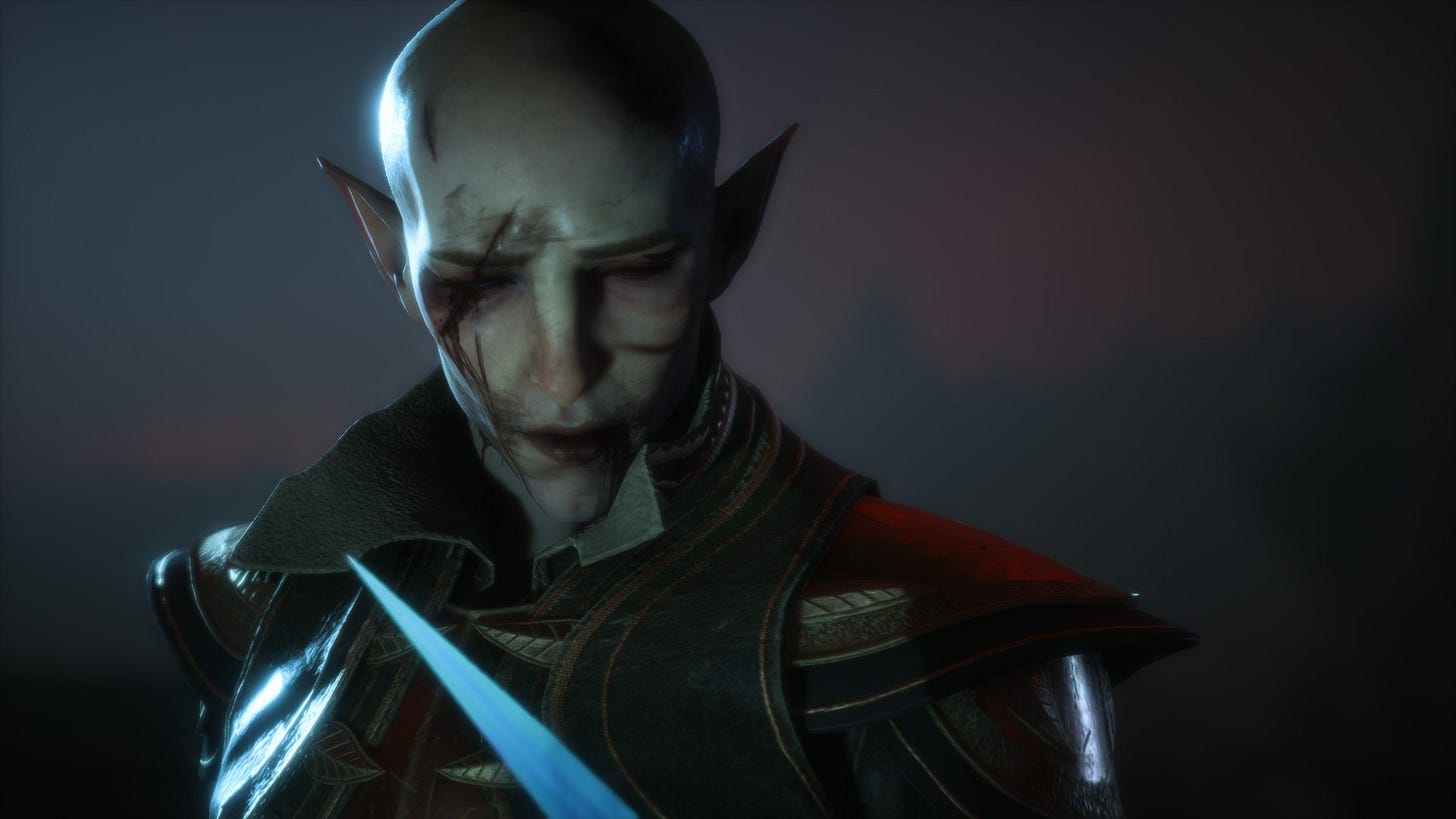Review: "Dragon Age: The Veilguard" isn’t perfect, but it’s still an adventure worth taking
Clunky lines and pacing issues aside, BioWare delivers another rich, emotional dive into Thedas. And yes, I know I'm late to the show!
BioWare is back (okay, they came back in October, I know, I know) with Dragon Age: The Veilguard, the latest chapter in its beloved role-playing series. As expected, it throws you into a rich, sprawling fantasy world full of difficult choices, deep character bonds, and the kind of storytelling that’s kept fans hooked for over a decade. Could it have been better? Absolutely. But it definitely doesn’t deserve the review-bombing it’s gotten.
It’s not perfect—but I still yelled at my screen, got emotionally attached to beautiful, fictional people, and had fun. Classic BioWare.
This time around, you play as Rook, the newest hero leading a team of misfits against two terrifying, ancient elven gods who are up to evil shenanigans in the world of Thedas. We finally get to explore new corners of this world—like the Tevinter Imperium, Antiva, and Rivain—which longtime fans will know is a pretty big deal.
Now, let’s talk choices. Normally, this is BioWare’s bread and butter: morally gray decisions that spiral into long-term consequences and personal regret (both the character’s and your own). Veilguard has a few of those moments—most notably, choosing between saving Minrathous or Treviso from a dragon attack. Whichever you pick, the other city is toast, and the fallout is messy and tragic.
Unfortunately, those moments are the exception, not the rule. There’s maybe…two of them. Which, honestly, feels like a missed opportunity in a game that’s supposed to make your choices matter.
The tone, however, hits the mark. People have complained it’s not “dark enough,” but I don’t think we played the same game. I definitely walked through a blood-soaked village filled with tentacled horror and corpses on spikes. It’s plenty dark. Maybe not Origins dark (First day they come and catch everyone…) but the vibes are adequately grim.
Combat is where Veilguard really shines. Every class feels fun, though mage is easily the star of the show (and I speak as a rogue-main). The action is smooth, the controls are intuitive, and the fights are exciting without being overwhelming. My only gripe is I wish I could directly control companions instead of just issuing a command for them to use a particular spell. But that’s not the hill I’m dying on.
Companions are another BioWare staple, and Veilguard gives us a new lineup of lovable weirdos. They’re sweet (a little too sweet sometimes, I’m looking at you Bellara), and while each one has their own baggage and beliefs, the relationships can simultaneously feel rushed and yet nowhere near deep enough. I need more time to get invested in who you are and why you matter, all while I wonder if you’re going to betray me by blowing up a building or if you’re secretly using blood magic. I will defend Lucanis with my life, however.
Yes, the romance is slow. No, I’m not over it. But I still couldn’t stop playing.
Romance, on the other hand, could have used a little more speed, and still more depth. The good news is that Rook can romance anyone—regardless of gender—which is great for inclusivity and representation. The bad news? It takes 4/5 of the game for my Rook and Lucanis to even kiss. I’m sorry, but it was almost as bad as not being able to romance Garrus until Mass Effect 2. Previous Dragon Age romances had me emotionally wrecked (yes, I did romance Solas in Inquisition, thanks for asking), so I expected more here.
It’s not all smooth sailing. The dialogue is clunky in places, and the pacing drags in others. But even when it stumbles, Veilguard keeps you grounded in a world that feels alive—with gorgeous landscapes, an amazing soundtrack, and moments that absolutely hit.
And the ending? There are three possible scenarios, and one of them had me full-on yelling at my screen. As the poet J.Lo once said, if you know, you know.
So yeah, The Veilguard isn’t perfect. But when it works, it really works. It may not reinvent the wheel, but it reminds us why we fell in love with this world in the first place—and that’s more than enough for me. Stop whining and go slay some elven gods.






